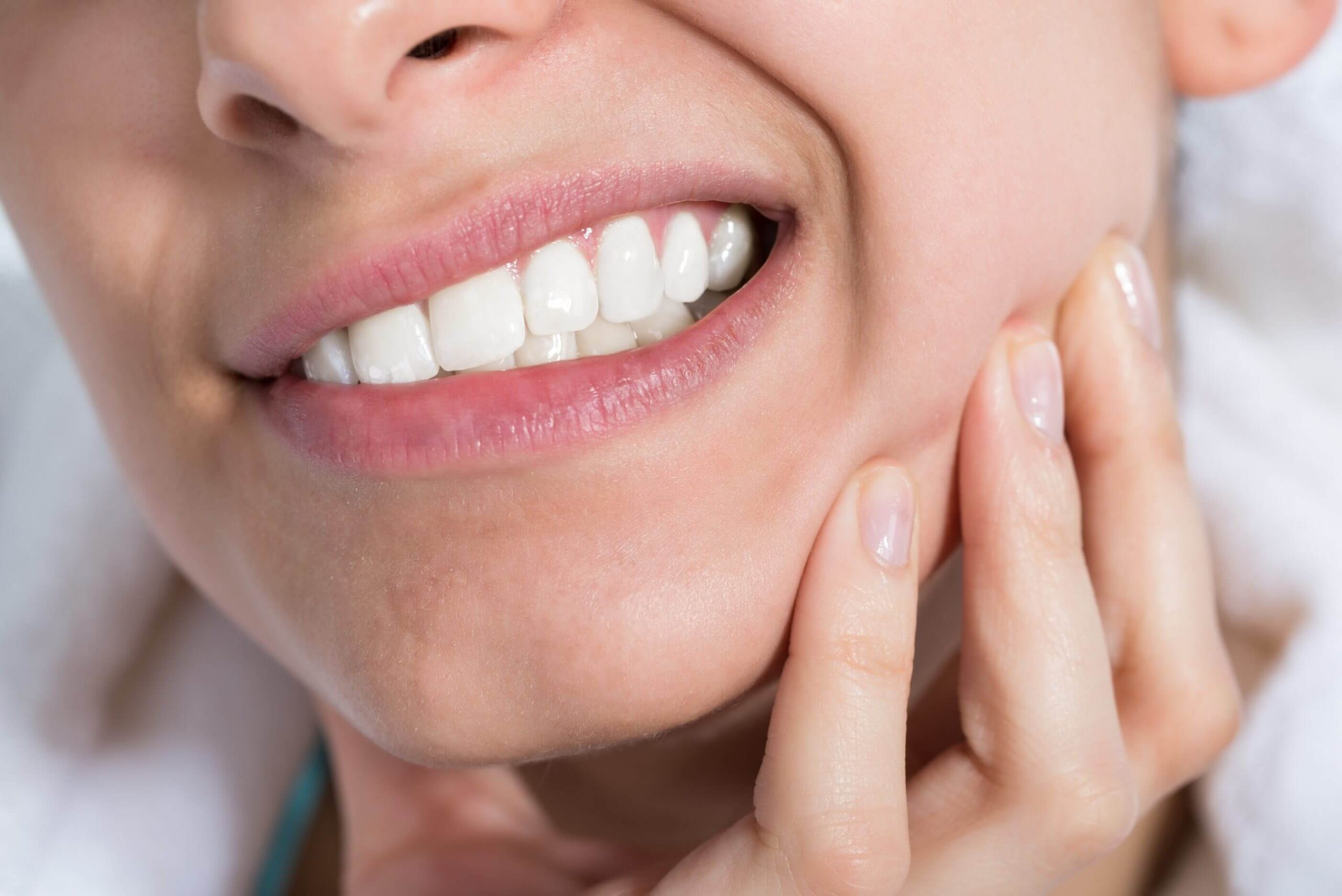Do you wake up with a pounding headache, a tense and tight jaw, or sore facial muscles?
You might be clenching your jaw while you sleep.
This can make your temporomandibular joint (TMJ) very tight. The TMJ the joint that connects your lower jaw to your skull.
This might be the cause of your discomfort. Keep reading to find out how to stop jaw clenching, and relieve your tightness and pain.
Symptoms of Jaw Clenching
There are many symptoms of jaw clenching. Some of them are things that you might not think are caused by your jaw.
Do you often wake up with pain in your head, face, jaw, and neck?
When you open your mouth, does it feel like it gets stuck, do you struggle to open it as much as you used to, or do you hear a popping sound?
These can all be caused by jaw clenching and a tight TMJ. You may even experience tension headaches TMJ induced.
These symptoms can be very debilitating and distressing. That’s why we’ve put together some techniques to relieve jaw pain and tension.
Exercises and Stretches
Specific jaw stretches and exercises can help to relieve tightness in the jaw and can reduce headaches. They can also help to increase your jaw’s range of motion.
It’s best to practice these stretches regularly.
Make them part of your daily routine to see the best results.
Jaw Joint Stretch
Put the tip of your tongue behind your upper front teeth. Then gradually open your mouth, moving your lower teeth away from your upper teeth.
This can help to relax your jaw, stretch the TMJ and facial muscles, and relieve tightness.
Manual Jaw Opening
To warm up, slightly open and close your mouth several times.
Then take four bottom teeth, and put your fingers on top of them. Slowly pull down until you feel slight discomfort in your jaw. Hold this position for 30 seconds, and then slowly release. Allow your jaw to come back to its normal position.
Start by repeating this stretch 3 times, twice a day. Gradually work your way up to repeating this movement 12 times, twice a day.
Smile Stretch
Stand in front of a mirror and smile as widely as you can. While still smiling, slowly open your jaw approximately 5cm.
Inhale through your nose, exhale through your mouth and stop smiling (while keeping your jaw open). Then slowly close your jaw.
Repeat this stretch 10 times. It will help to relax your face, jaw, and neck muscles, reducing pain and discomfort.
Give Yourself a Massage
Giving yourself a massage can increase blood flow and reduce muscle tightness. It can provide effective short-term relief from discomfort.
Open your mouth slightly and rub the muscles on either side of your face in a circular motion. It’s best to do this regularly, up to several times a day.
Wear a Mouthguard
Mouthguards can be worn to reduce pain, prevent further damage to your teeth, and treat joint disorders that are causing you to clench your jaw.
A Mouthguard for Teeth Grinding
If you are clenching your jaw while you sleep, you could be grinding your teeth.
Your dentist may recommend a mouthguard. This will cushion your teeth and reduce the contact between your upper and lower teeth. It can help to protect your teeth from grinding against each other, prevent damage, and can reduce jaw pain.
These mouth cards can be made of several materials, including hard acrylics and soft plastics. They can also be custom-made or purchased over the counter.
Discuss your options with your dentist, and they will be able to advise on the best mouthguard for your needs.
A Mouthguard for Joint Disorders
Your dentist may advise you to use a specific mouthguard called a splint. This is usually recommended if you have a joint disorder such as a temporomandibular disorder (TMD), which can cause stiffness and pain around your jaw.
These splints are usually made of acrylic and custom-made. They gently hold your lower jaw in a forward position, which helps to reduce the strain on your jaw bone and muscles.
Depending on your particular circumstances, your dentist may recommend that you were this only at night, or for 24 hours a day.
Get Botox
Botox can be used to treat jaw clenching and TMJ disorders. Studies in 2003, in 2008, and in 2012 found that Botox could significantly decrease pain in the jaw and mouth.
A medical professional will inject a very small amount of Botox into the masseter; that’s the large muscle that moves your jaw. This helps to relax the muscle, reducing jaw clenching and the pain associated with it.
Results usually last between three and four months before the process needs to be repeated.
How To Stop Jaw Clenching
Jaw clenching can cause a huge amount of pain and discomfort. It can be very debilitating and affect your everyday life.
If you want to know how to stop jaw clenching, try these techniques.
While you’re here, take a look at some of our other health and lifestyle articles to make life easier.






